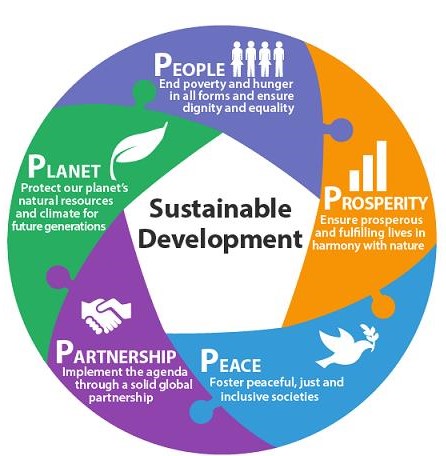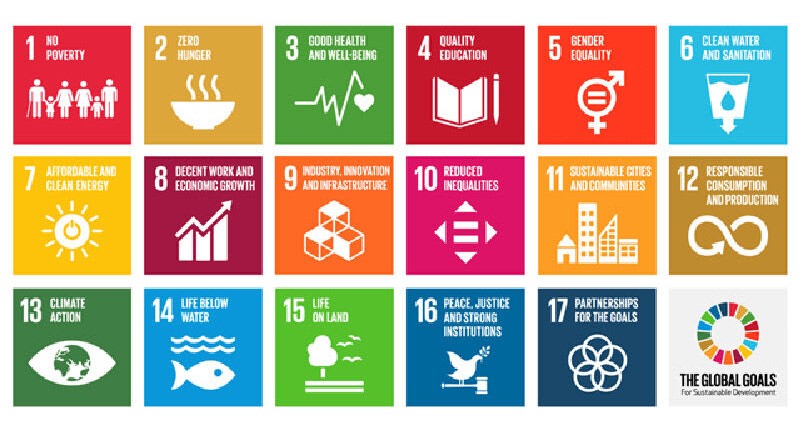NATIONAL LIBRARY AND DOCUMENTATION SERVICES BOARD

NATIONAL LIBRARY AND DOCUMENTATION SERVICES BOARD

Sustainable development is broadly defined as the development that meets the needs of the present without compromising the ability of future generations to meet their own needs. Although in the first glance most people limit sustainable development to environment, it is equally rooted in social equity and economic development.
Sustainable development is a holistic approach that considers ecological, social and economic dimensions, recognizing that all must be considered together to find lasting prosperity.Sustainability
is the foundation for today's leading global framework for international cooperation – The 2030 Agenda for Sustainable Development and its Sustainable Development Goals (SDGs).

In September 2015, all 193 Member States of the United Nations adopted a plan for achieving a better future for all – laying out a path over the next 15 years to end extreme poverty, fight inequality and injustice, and protect our planet. At the heart of the "Agenda 2030" are the 17 Sustainable Development Goals (SDGs) which clearly define the world we want – applying to all nations and leaving no one behind.
The new Global Goals result from a process that has been more inclusive than ever, with Governments involving business, civil society and citizens from the outset. We are all in agreement on where the world needs to go. Fulfilling these ambitions will take an unprecedented effort by all sectors in society and we at SDC are committed to drive Sri Lanka towards a sustainably developed country for all.

Libraries are key partners in this global work. Achieving all of the Goals depends on libraries and information. The International Federation of Library Associations (IFLA) has been actively involved with the creation and promotion of the UN 2030 SDGs. They have advocated for the inclusion of access to information, safeguarding of cultural heritage, universal literacy, and access to information and communication technologies in the framework. All types of libraries, professional associations, and other cultural heritage organizations can be involved in this work. Doing this work and connecting it to the SDGs makes it easier to advocate for libraries at the local, regional, and state level.
Libraries play a big part in helping to provide knowledge, understanding, and resources to our communities. Economically, socially and environmentally sustainable development depends on access to information. Without it, everyone – from the individual to the global level – is deprived of the ability to make the right decisions, to innovate, to participate, and to benefit from the right to science and culture.
In turn, libraries are essential for meaningful and equitable access to information, focused on giving everyone the possibility and skills to make the most of information.
Present in almost every city and town around the world, our institutions, therefore, offer a unique reach and potential to achieve policy goals across the board, in particular those set out in the United Nations 2030 Agenda.